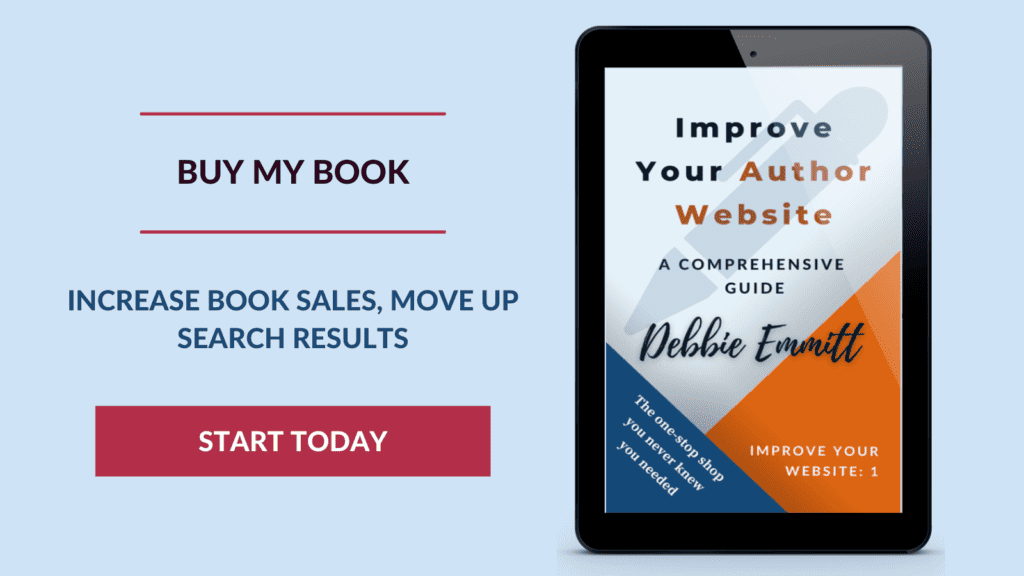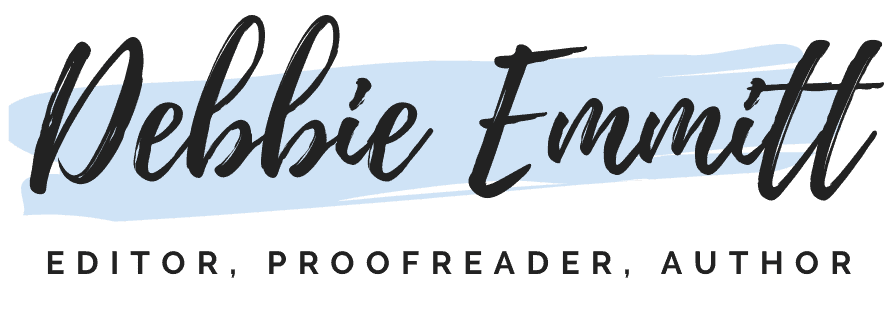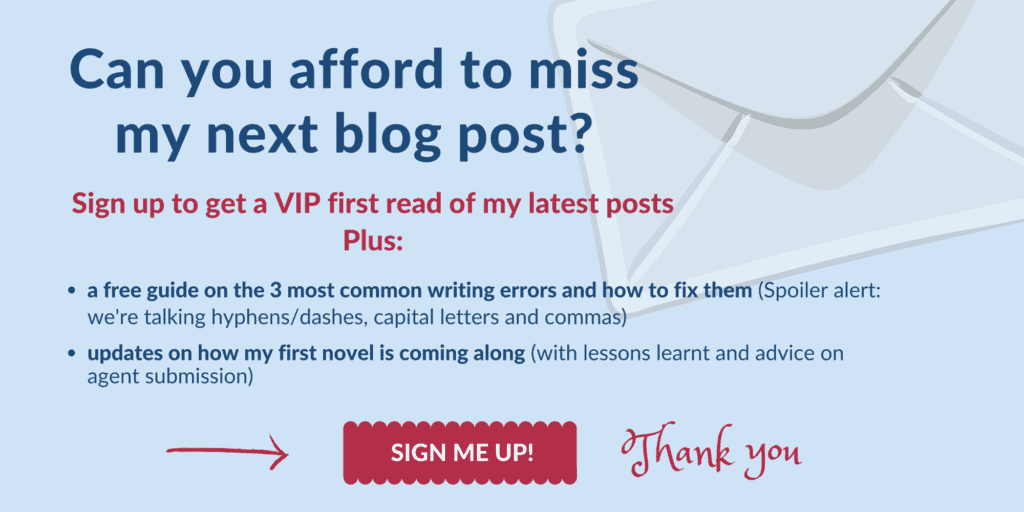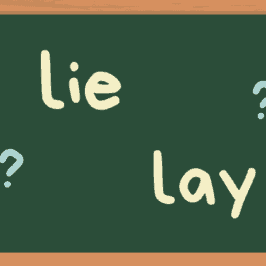
I’ve chosen my beta readers. Find out how I will be approaching those who don’t yet know the ‘good’ news, and what I will be asking of them when the time comes to send them my book.
Most of my beta readers already know they will fulfil this wonderful role for me. Granted, I’ve taken much longer getting round to finishing my manuscript than I’d hoped. Some of my betas may have forgotten that I asked them, and I wouldn’t blame them; it was a while back.
There are a couple who are as yet blissfully unaware. If you’re a writer, you may be in the same position.
Asking someone to be your beta reader
While I know most of my beta readers already (family/friends/colleagues etc), there are a couple of people whom I would like as beta readers, who do not know me. I have selected them because I know they can offer insight into the way I have portrayed some of my characters. They are, in effect, sensitivity readers.
If this is the case for you, the first step is to work out the best way to initiate contact.
Which communication channel to use
We have so many communication channels open to us these days, from social media and email to phone calls and traditional snail mail. How you initiate contact will depend on the individual (which contact details you have for them, whether they express a preference on their website etc).
However you choose to get in touch, do not do it in a public arena. For example, if using Facebook, send a private message rather than posting on their wall. It is their right to politely turn down your request in private, without feeling press-ganged into saying yes.
It is a potential beta reader's right to politely turn down your request in private, without feeling publicly press-ganged into saying yes. Share on XWhat to say in your message
Whether you are asking someone you know well, or a fellow writer or target reader whom you know of but who is not acquainted with you, the following points apply:
- Briefly explain the role of a beta reader – It is likely they will never have heard the term ‘beta reader’. Don’t write an essay of roles and responsibilities, but outline what a beta reader is, so they can understand what would be expected of them, should they accept.
- Explain why you have chosen them – You will have picked them for a specific reason. Make sure to let them know. This will make them feel valued (and therefore more likely to say yes, if they are available) and pave the way for them to offer you constructive, tailored feedback if and when the time comes.
- Be humble – You are asking them to give their time, free of charge, for you. They are doing you a favour, not the other way round.
- Be genuinely open to a refusal – This is an extension of the first point but is important enough to deserve its own bullet point. Do not expect them to automatically say yes. They may be extremely busy (let’s face it, we all are), be going through a personal crisis, or just not feel ready to be your beta reader. Make it clear (sincerely) they can refuse your request.
- Communicate your rough timescale – You may be prepared to wait a few weeks for certain beta readers, especially if you have selected them for a very specific purpose, but they may not be available for the next six months. Let them know roughly when you are thinking of sending your manuscript to beta readers, and an approximate date by when you would like feedback returned. They can then check if they are in a position to help you, or politely decline due to a chock-a-block calendar.
- Keep it short – Conciseness is the key to most (all?) successful communication, and this is no different. They are less likely to read a wall of text, and even if they do, your main points will be lost. Keep it short and sweet, while incorporating the points in this list. Your potential beta readers are more likely to say yes if they understand why you are contacting them, what is expected of a beta reader, and by when you are hoping for feedback.
- Find out the best way to contact them – End by asking their preferred method to communicate with you, should they kindly agree to being your beta reader. The best email for them is ideal, as you can then send attachments and longer messages (if your initial contact has been a private instant message).
It’s up to you how much you tell them about your book at this stage. I personally won’t be telling my beta readers much more than is on my book’s webpage. This is less for reasons of confidentiality and privacy, and more because I want them to discover the plot twists, characters and story arcs for themselves, as genuine readers would do.
The exception to this is my sensitivity readers. I will need to tell them a bit more about my story, so they understand why I am asking them to be beta readers, and so that they can look out for issues with particular scenes toward the end of the book where their feedback is most pertinent to my story.
Don’t send your manuscript yet. It will look like you are expecting them to say yes, and will feel too pushy. What’s more, if it is someone you don’t know well, you have no idea if they will read your book and use some of your ideas for their own means. While most people wouldn’t dream of doing such a thing, it pays to be wary at this stage. Keep your book close to your chest until you have secured your final list of beta readers.
Before you send beta readers your book
Once you have your final list of beta readers, there are a few things to do before you send them your manuscript.
- Find out the best format for them – Don’t assume you can just send them a PDF of your book. They may prefer to read it on their Kindle, on printed pages, or in another format. Give them a list of possible options and ask them to select the most convenient one for them.
- Double-check that they are still available – This mainly applies if it’s been a while since you asked them to be your beta reader. Check they can still deliver by your ideal deadline. Don’t forget to be humble and grateful!
- Prepare guidelines – Put together a list of questions and elements of feedback that you are particularly interested in. You will send this with your manuscript. More about this in the next section, ‘Guidelines for your beta readers’.

Guidelines for your beta readers
It would be a shame to have gone to all the trouble of carefully selecting your beta readers, painstakingly preparing your manuscript for them, and anxiously awaiting the results…only to receive generic comments and untargeted feedback.
Or, you may receive what you perceive as harsh criticism and nit-picky advice, when the beta reader in question may feel they are being incredible helpful.
You can avoid these scenarios, and other negative ones like them, by communicating up front with your beta readers about what you would like them to send you in terms of feedback.
Ideal beta-reader feedback will differ depending on a host of factors, just some of which are:
- The stage of your book’s draft – You may just be looking for top-level comments as to whether the book’s concept works. These readers tend to be called ‘alpha readers’, but I’m not here to split hairs.
- Why you picked certain beta readers – You may wish some beta readers to be looking out more for writing-craft issues (e.g. if they are authors themselves), some to look at issues of sensitivity, and others to comment on more general ‘reader’ issues (e.g. which parts are boring/exciting etc).
- How sensitive you are to criticism – It’s best to try to develop a thick skin and ask for honest feedback, but if you know this will greatly knock your confidence at this stage, find a way to request the level of feedback that will be useful to you without preventing you from ever publishing your book.
Questionnaire for beta readers
I will be sending all my beta readers a short questionnaire (no longer than two sides of A4, including space to write answers). Some questions will be common to all beta readers, but others will be tailored for specific readers.
I’ll make sure they know that they don’t have to answer all the questions, but any that they can answer will be extremely helpful to me.
My generic questions will be along the lines of the following. Feel free to steal/amend this list as appropriate (let me know in the comments if it was useful!):
- Scales of 1 to 8 (not up to 7 or 9 to avoid fence-sitters) on how exciting or boring they found certain scenes.
- Reactions to the opening scene. Does the book start ‘in the right place’? Did the opening line/scene grab them or make them want to put the book down? (Again, make it clear you are looking for honest answers and be prepared to receive them!)
- Redundant scenes. Which of my ‘darlings’ do I need to kill?
- Confusing aspects of plot, dialogue or narrative.
- Inconsistencies of any kind, e.g. character, plot, setting.
- Which parts of the dialogue they felt were not natural or did not advance the plot.
- How exciting they found the climactic scene (make it clear which scene this is).
- How satisfying the ending was.
If you are struggling to make a certain scene or sequence come to life, or if you aren’t sure about how you have written a particular character, you could ask your beta readers to comment on these aspects too.
Your beta readers can help you decide which 'darlings' to kill. Share on XMy more tailored questions for particular beta readers will include aspects of the French setting, language and characters; sexuality and gender identity; and particular professions depicted in the book. These are very bespoke to my novel, and you will have a similar list for your own work in progress.
General requests for beta readers
It will also be incredibly useful if your readers could make occasional short notes as they work through your book. For example, if they really like something, they could jot a few words to that effect.
Similarly, if they dislike or disagree with an element of a scene, encourage them to note this down as well, with a brief reason.
Again, when asking your beta readers to provide these notes, be humble and grateful. Emphasise that they don’t have to make lots of notes, and that any comments are better than none.
Next steps
Now that you have all your ducks (beta readers) in a row, it’s time to get your book to them. Push the button, or drop it in the post/mail, and keep yourself busy while you anxiously await their comments!
You may find it helpful to check out my other two blog articles in this series about beta readers:
Finally, if you’ve been asked to be a beta reader, KM Weiland has written a fantastic blog post about how you can best help the author for whom you are beta-reading. Find out more about beta-reader etiquette.
Have you ever been a beta reader? Let me know in the comments how you found the experience, and what authors can do to help the process run more smoothly.
If you’re an author, I’d love to hear your special tips on how to communicate with beta readers.









Leave a Reply